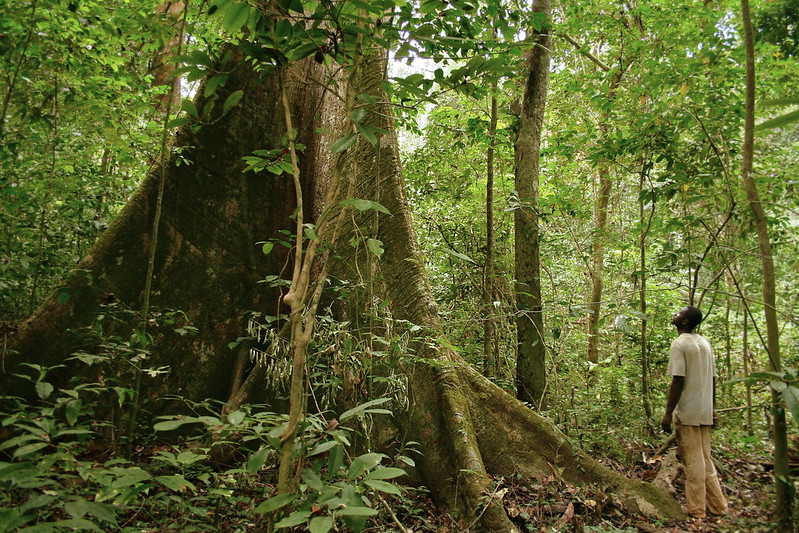Paying countries to keep their forests intact is one way the world could slow deforestation.
Trees are a great ally in the fight against climate change; they suck the greenhouse gas carbon dioxide out of the air and store it safely. They also do a lot of other environmentally positive things: they root soil in place, stopping it running into rivers, and they provide a living space and food source for many animals, including humans. Plus, they look nice! Spending time in nature is good for our wellbeing (and many countries' tourism industries). All of which is why over 100 countries have just pledged to end deforestation completely by 2030.
Promises are one thing. Action is another. Not everyone is convinced that global tree-cutting is going to stop any time soon. After all, the last time lots of governments made an anti-deforestation pledge, in 2014, deforestation didn’t slow at all. The problem is that there are still significant incentives to cut down trees. Wood is a widely-used material, and once a tree is out of the way, the land where it stood can be used for other useful purposes, including housing and farming.
Ultimately, deforestation has been a huge money-maker for many businesses, including big global ones. That in turn has made it a money-maker for many governments, who sell land to these companies and tax the profits of their business. Deforestation has also benefited many individuals, including many poorer ones. Sawn-off tree trunks might signal environmental destruction, but they also signal jobs and fuel and furniture and housing and government spending and economic development and many other things that help humans survive and thrive.
Many environmentalists would say the costs outweigh these benefits. After all, through things like more intense weather events, climate change has the potential to cause significant damage to both business prospects and everyday life. Plus, it is slated to hit the poorest people living in the poorest countries the most. But some argue that the world simply cannot tell some people or some parts of the world that they can't benefit from deforestation in the same way other people or parts of the world did in the past. For one thing, it's not fair. For another, they're unlikely to listen.
A potential solution to this ethical problem has been trialled in the country of Gabon. It is not a rich country: about a third of its population earn under the minimum wage and over three-fifths of its children drop out of school. Gabon is, however, rich in rainforest. About 85 percent of its land is currently covered in trees. Gabon’s government has therefore suggested a deal: the world should pay it to not chop those trees down. The United Nations agreed to this plan in 2019: it will pay Gabon $150 million over ten years if it keeps its forest mostly intact. Whether this scheme will be successful enough to be deployed elsewhere and help the world meet that 2030 deforestation target remains to be seen.
Read our explainer on: international development.

